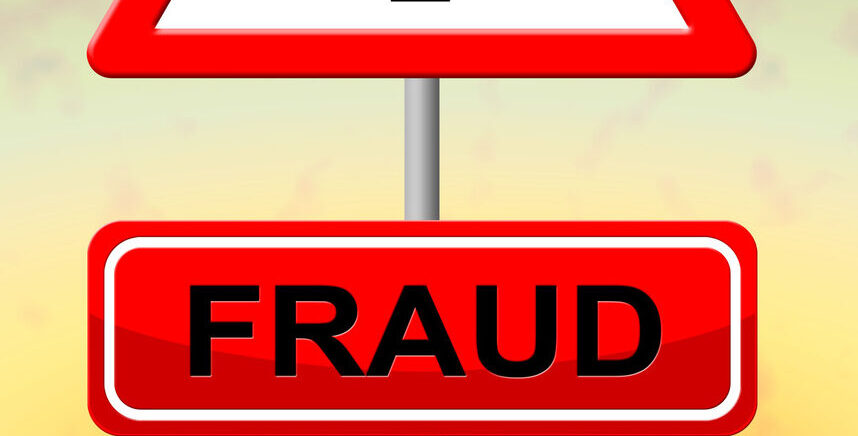As a lawyer, I am aware many practicing attorneys are prone to producing misleading Chinese translations. Most bilingual lawyers attempting Mandarin translation are novices in the field and mistakenly underestimate the amount of knowledge and training required to produce high-quality translations.
Specialists are another matter; many of the best, world-acclaimed Chinese translators, such as Ken Liu, were trained as lawyers. However, many large law firms put the responsibility of translating key documents on attorneys with no translation experience whatsoever. Despite the fact that legal training is a prerequisite for legal translators, there’s simply no way a full-time practicing lawyer can accumulate the experience and specialization necessary to become a competent translator.
Chinese translation is in itself a difficult profession, yet the offices of several prominent law firms in China seem to think that simply being bilingual makes an attorney an expert linguist. On the contrary, when I managed translations on large-scale projects, I did numerous comparisons on whether lawyers with zero translation industry experience or training were capable of producing accurate legal translations; the answer was a resounding “no.”
One of these comparisons involved managing a team of 50 translators for one of the three largest translation companies in the world, on a project where we also hired Chinese-speaking attorneys with US legal training. We used blind review methods to rate the English translations produced by bilingual lawyers with American law degrees, as compared to the work of mid-level translators with 3-5 years of experience. On virtually every kind of document, including contracts and pleadings, translators with as little as 3 years of industry experience outperformed licensed attorneys holding Juris Doctors at the same task.
Even today, I sometimes have my own legal translation students review whether translations on big law firms’ websites posted by China office lawyers are accurately translated – and the result is generally nothing short of embarrassing.
Sometimes the translation decisions can be bizarre. In Foreign Corrupt Practices Act cases where outlandish meals would be considered bribes, practicing attorneys carrying out translation work would constantly translate $10 business meals provided to a client as “banquets.” In money laundering cases involving many small withdrawals of money, the lawyers would translate the banking locations used as “service points.”
Those attorneys lacked the translation research skills needed to discern what the terms they used actually meant. For example, the Internal Revenue Code clearly defines what a “business meal” is. In the same way, a translator could just as easily visit the Citibank or Chase website to find out how to translate “bank locations;” yet lawyers attempting translation were mistranslating ordinary “bank locations” into “service points.” Despite what many might believe, lawyers without translation training and experience are not competent translators. They have the basic background knowledge, but lack the analytical and practice skills needed for translation.
Those lawyers who became leading translators studied and worked hard for many years, amassing a wealth of experience and knowledge, before holding themselves out to the market as Chinese language experts. These were long years in which they carried out a heap of translation work, after which they gained recognition. As a matter of fact, there are quite a few professors and trainers at universities around the world who have come from similar backgrounds where legal experience and translation industry experience combined have created an expert. None, however, have stemmed from in-house law firm translation roles and nobody with that kind of background has been able to prove themselves as anything more than an amateur translator.
Having any kind of transactional document or legal memorandum translated into English by a law firm’s attorneys can create unexpected risks. In a case involving a federal government probe involving illegal import/export practices with regulators threatening to fine a company into bankruptcy, the eDiscovery phase had found old legal memoranda that could prove the innocence of the company. The main issue, in this case, was that the law firm’s own translation of the memorandum largely stated the exact opposite of what the original Chinese did. To save their client from bankruptcy, an American law firm had to find a way to credibly present a high-quality translation of the memorandums while getting the previous incorrect ones disregarded. Should they have failed, their client would be out of business today.
Avoiding law firm “courtesy translations” can protect a company in the event of future litigation. In a well-reported case, a financial institution faced a very credible risk of a judgment in the range of hundreds of millions of dollars and the plaintiff’s counsel, a prestigious law firm, was seemingly well-positioned to demand hundreds of millions in settlement. The defendant’s counsel, however, had an excellent grasp of Chinese and realized that legal memoranda about the matter written by attorneys many years ago could be credibly used to prove their client’s innocence. At the time, no English version of the memoranda had previously been created, so the company was able to hire one of the world’s best translators to render the document into correct English.
In mainland China, where communication is often intentionally left vague in letters and meeting minutes, legal memoranda are sometimes the most specific and precise account of past events. Thus, the translation of essential legal documents, such as corporate board minutes or contracts, should never be left in the hands of an amateur.
Charging clients attorney rates to produce Chinese translations by attorney staff generally qualifies as overbilling. A practicing attorney simply does not have the cutting edge technology, termbases, translation memories, or proficiency in translation to produce translations at a speed that would be competitive with that of a legal translator – even if they charged just a fraction of their typical hourly rate. Moreover, the translation produced would, without a doubt, prove to be far inferior to what a genuine translation expert could produce.
I have heard attorneys at several major law firms say they engage in this kind of overbilling practice on the widely discredited theory that lawyers untrained in translation can do this work better than translators, and therefore deserve premium rates. This is a common logical fallacy, usually derived from past experiences wherein the attorneys were let down by underperforming translators – incompetent, possibly uncertified translators hired through a typical translation outsourcer who cuts corners by hiring the cheapest translators they can find. Therefore, instead of seeking out leading translators or even someone with very minimal translation certification and legal training for future projects, these attorneys decided to take matters into their own untrained hands.
More worrying is the common practice adopted by several mainland China law firms, a practice that involves offering legal translation for a flat fee billed through the law firm. Unlike the common law jurisdictions which require pricing non-legal services “at cost,” lawyers in mainland China actually get away with charging huge markups on outsourced translations (and even legal work). When working with a law firm in mainland China, insist on working with your own translation expert. This gives you full control over the translation process and avoids excessive markups being charged.
Several lawyers in China have told me about billing practices where firms charge $3 for every $1 of work outsourced through a translation company, claiming that the contract was “translated by an attorney” at their firm. While they might collect just $500 billable time reviewing a contract translated by a certified translator, law firms instead pocket $1,500 as a flat fee for their “translation services.” Some law firms in China go as far as hiring bilingual interns from local law schools to translate these contracts, meaning that clients receive services from novices marked up above translation company rates. These lawyers should intuitively know this is the wrong thing to do. After all, a corporate lawyer doing a deal with a complex tax question would seek advice from a tax specialist, while they would go to a real estate specialist if they had a complex real estate question. Yet for complex translation questions, they turn to people who have little relevant experience or even interns.
The best thing an attorney can do for their client in these cases is to delegate the work to a genuine legal translation specialist in legal translation having the appropriate recognition and certification in their field. For example, translating a Chinese contract to English accurately would involve an ATA or CIOL certification in translation from Chinese to English, and a background in law. Translating a document incorrectly is also possible, but generally pointless at best and could prove to be highly risky.
Bilingual lawyers with no translation experience can be forgiven for being overconfident about their translation prowess and overbilling clients because they do serve a very important role in the translation process: providing oversight as the subject matter expert. Generally, no one can single-handedly find all of the problems and shortcomings in a translation. A good translation must be reviewed by many people with different backgrounds and perspectives. A lawyer, who is very familiar with the legal matter, is well-positioned to review the translation to see how it fits in with an advocacy point or transaction. However, while the practicing attorney may be capable of spotting a handful of mistakes in a document translated by an expert, they are often shocked when working as a translator to discover that their own attempts as a translator result in dozens of errors.
Conclusion
Merely being bilingual doesn’t qualify attorneys to produce accurate legal translations; that takes years of training and experience. Make sure that whoever is translating your documents has the appropriate translator certification from the ATA or CIOL before embarking on translation work; this applies both to in-house translators and to translation professionals retained to assist with the work. Only by delegating the work to an expert translator can you be sure that work will be completed adequately.


2 comments
This is most definitely true, and it goes for virtually any specialty, not just law. You have to be very familiar with the subject matter, including jargon and specialized terms. I think this is almost more important than mastery of both languages. I was in the US Foreign Service and often listened to simultaneous translations from English to French and vice versa for a regular multilateral meeting on debt rescheduling that I attended. The interpreters who covered the meetings regularly did fine, but replacements were totally at sea, not really understanding what was being talked about and missing all the specially coined terminology shared by the participants. I speak excellent French and native English, and am comfortable doing “normal” simultaneous interpreting, but if I were at a medical or scientific seminar would be utterly incapable of interpreting (or translating) anything in either direction.
I also think it is — counterintuitively — more important to have near native fluency in the “from” language than the target language. To interpret something, on the fly, you have to be absolutely certain of what it actually means. Once you have that, if you speak the target language well, you should be able to find adequate words to express the thought. Translation is a little more forgiving because you have time to research unfamiliar terms and cast around for felicitous phrasing in the target language.
Thanks for your insights Jack!